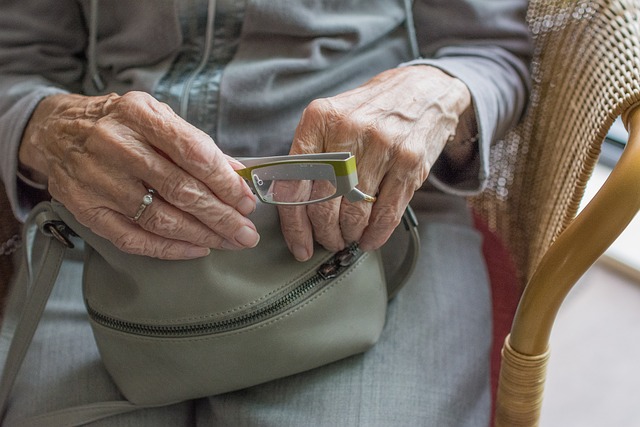Elderly Companion Services are instrumental for seniors facing social isolation during their retirement years. This challenge can negatively impact their health, with effects as serious as the risks of smoking 15 cigarettes a day. Engaging with others is crucial for maintaining mental and physical well-being in the elderly, and these services offer tailored companionship to address this need. They provide regular interaction that benefits cognitive health, mental well-being, and potentially increases life expectancy by reducing loneliness. These services are not just about company; they ensure a consistent presence that helps seniors remain active and valued members of society, fostering meaningful human connections. By aligning activities with the seniors' interests, these companions offer cognitive stimulation and emotional support, which is vital for safeguarding their health and upholding their quality of life as they age. Additionally, Elderly Companion Services offer practical assistance with daily tasks and healthcare management, enhancing mood and overall satisfaction, and are a key resource in combating the detrimental effects of isolation on the elderly population.
Social interaction is a cornerstone of well-being across all ages, particularly among seniors who face the challenges of isolation with increasing vulnerability. As we explore the significance of social engagement for the elderly, this article delves into the transformative role of companion services as a viable solution to combat loneliness in later life. The narrative will unravel the multifaceted benefits of these services, from enhancing health and emotional well-being to contributing positively to physical health outcomes. Through an examination of the latest research, real-life success stories, and the diverse offerings within companion service provisions, we aim to shed light on how such interventions can significantly improve the quality of life for isolated seniors. Join us as we navigate the critical intersection between human connection and the holistic health of our aging population.
- Understanding the Importance of Social Interaction for Seniors
- – The Role of Social Connections in Maintaining Health and Well-being Among the Elderly
Understanding the Importance of Social Interaction for Seniors

The golden years of life, often associated with retirement and leisure, can also be a time when social isolation becomes a significant issue for seniors. As individuals age, the natural ebb of friends and colleagues moving on through life’s transitions can lead to loneliness, a condition that poses as much risk to health as smoking 15 cigarettes a day. Understanding the importance of social interaction for seniors is crucial in mitigating these risks. Regular engagement with others helps maintain cognitive function, improves mental well-being, and can even extend life expectancy. Elderly companion services emerge as a vital resource in this context, offering personalized attention to meet the emotional and social needs of isolated seniors. These services not only provide companionship but also assist with daily activities, ensuring a senior’s quality of life is enriched through meaningful human connections. The role of these services is to bridge the gap between the lonely elderly and a more connected and fulfilling social life, fostering environments where they can thrive and feel valued members of their communities.

As individuals age, social interaction becomes increasingly vital for their mental and emotional well-being. The elderly companion services have emerged as a beacon of support for isolated seniors, offering companionship that goes beyond mere friendship. These services are designed to address the unique needs of older adults who may be experiencing loneliness due to the loss of spouse, diminished mobility, or the natural migration of children and family members. By providing a consistent presence, these companion services help to alleviate feelings of isolation, fostering a sense of connection and purpose that can significantly enhance quality of life. The companions are trained to engage in meaningful activities tailored to the senior’s interests, facilitating not only social interaction but also cognitive stimulation and emotional support. This proactive approach ensures that seniors remain an integral part of their community, maintaining their social ties and staying engaged with the world around them.
– The Role of Social Connections in Maintaining Health and Well-being Among the Elderly

As we age, maintaining social connections becomes increasingly crucial for the elderly to preserve their health and well-being. Social interaction is a vital component that supports both mental and physical health in seniors. Studies consistently show that regular engagement with others can reduce the risk of depression, cognitive decline, and various chronic diseases. It also enhances emotional wellness by combating feelings of loneliness, which is a growing concern among older adults, particularly those who live alone. Elderly companion services emerge as a significant solution in this context, offering companionship that fulfills the social needs of seniors while providing peace of mind for their families. These services are tailored to match individuals with compatible companions, fostering meaningful relationships and engaging activities that align with the senior’s interests and abilities. This personalized approach not only alleviates the sense of isolation but also contributes to a longer, healthier, and more fulfilling life for the elderly. The benefits of such services are manifold, from improved mood and quality of life to practical support in daily tasks and healthcare management, underscoring their importance in the lives of the aging population.
The significance of social interaction for seniors cannot be overstated; it is a vital component in maintaining their health and well-being. As we age, the risk of isolation increases, making services like elderly companion services increasingly important. These services offer a lifeline to those who may otherwise find themselves without regular human contact or engagement with their community. By fostering meaningful connections and providing companionship tailored to individual needs, such services play a pivotal role in enhancing the quality of life for isolated seniors, ultimately contributing to a more vibrant and interconnected society. It is through these personalized interactions that we can ensure our elderly population remains an integral part of the community’s social fabric.
